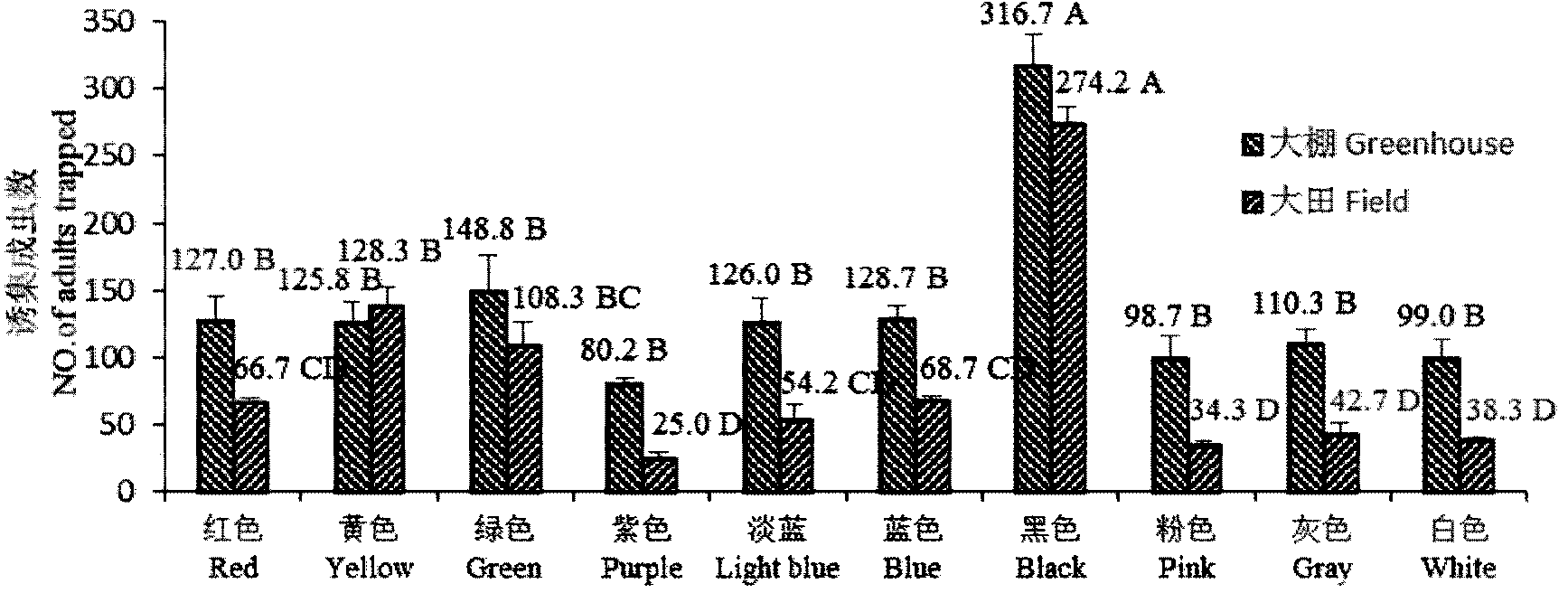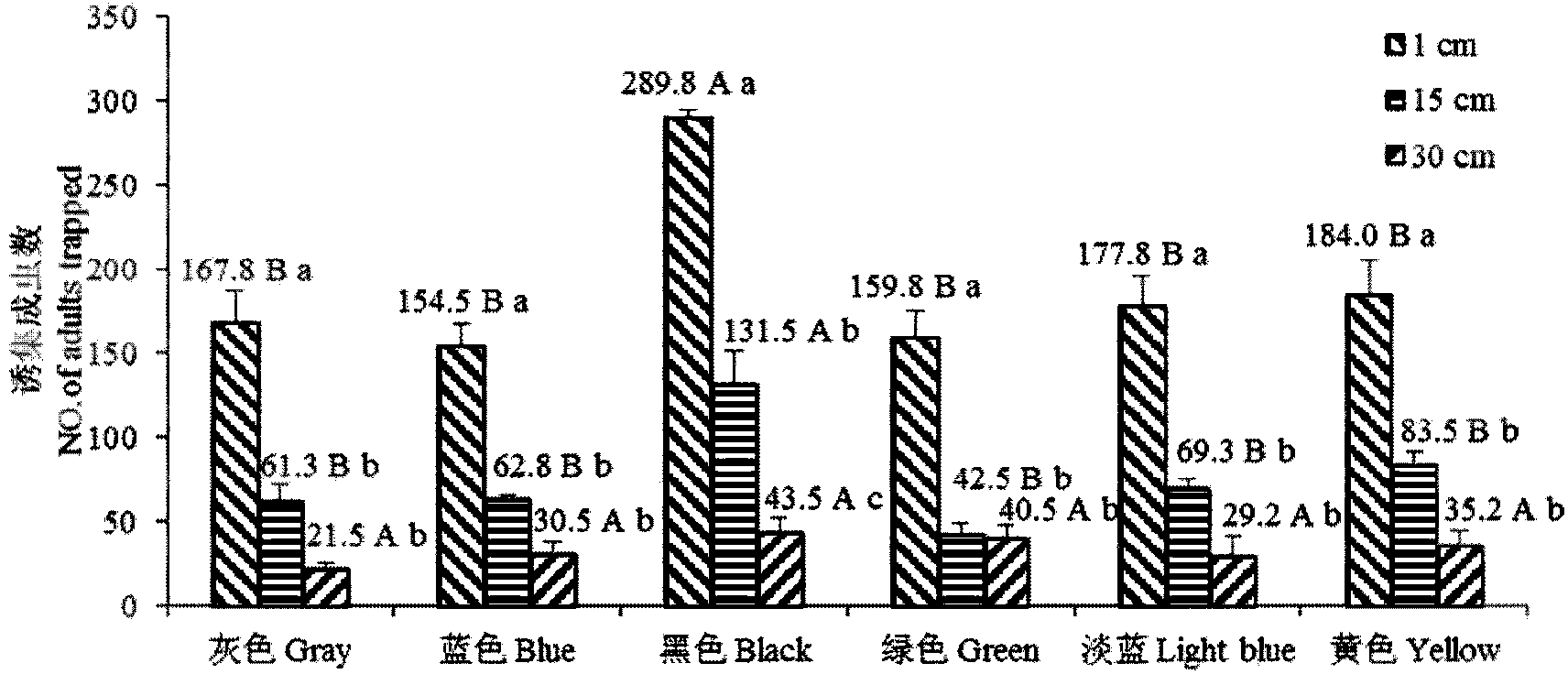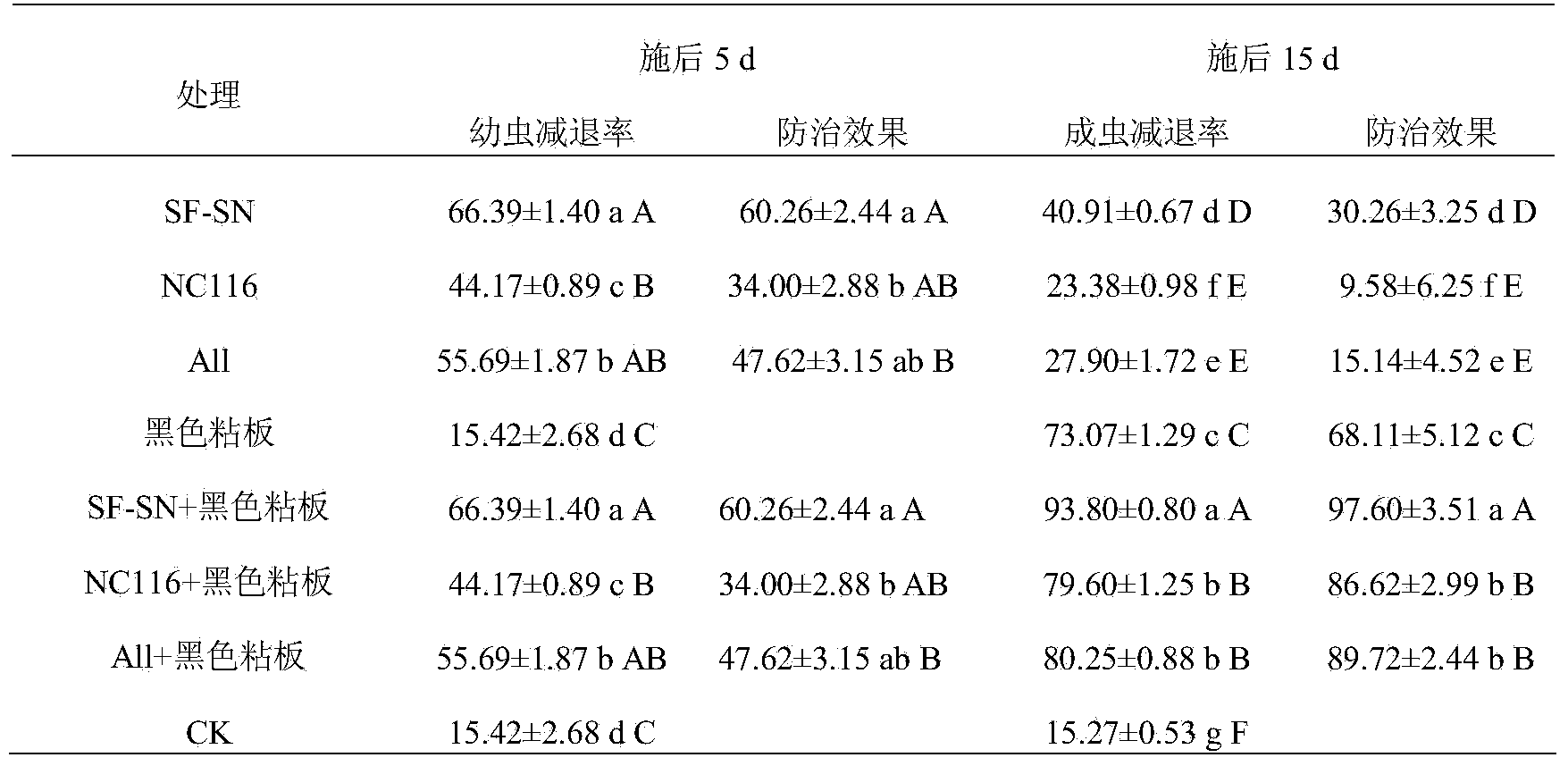Pollution-free method for controlling bradysia odoriphaga
A technique for tardy-eyed fungus and chive maggots, applied in the field of biological control and physical control, to reduce the population base and improve the effect of control
- Summary
- Abstract
- Description
- Claims
- Application Information
AI Technical Summary
Problems solved by technology
Method used
Image
Examples
Embodiment Construction
[0008] Technical scheme of the present invention is as follows:
[0009] A method for pollution-free prevention and control of tardigrade chives, comprising the following steps:
[0010] (1) Select loose and aerated soil for site preparation and plant crops;
[0011] (2) The entomopathogenic nematode suspension of 500-1000IJS / mL is applied at the leek maggot larval stage, and the entomopathogenic nematode suspension is prepared by adding distilled water to the entomopathogenic nematode that meets the detection conditions, and a black Sticky board monitoring, when leek maggot adults appear on the sticky board, start to hang a large number of black sticky boards, the lower bottom edge of the black sticky board is 0.5-1cm away from the ground, and the long side is parallel to the ground. The number of black sticky boards per mu is 60~ 80 pieces, normal field management after application;
[0012] The above test conditions should meet the requirements of the following a:
[001...
PUM
 Login to View More
Login to View More Abstract
Description
Claims
Application Information
 Login to View More
Login to View More - R&D
- Intellectual Property
- Life Sciences
- Materials
- Tech Scout
- Unparalleled Data Quality
- Higher Quality Content
- 60% Fewer Hallucinations
Browse by: Latest US Patents, China's latest patents, Technical Efficacy Thesaurus, Application Domain, Technology Topic, Popular Technical Reports.
© 2025 PatSnap. All rights reserved.Legal|Privacy policy|Modern Slavery Act Transparency Statement|Sitemap|About US| Contact US: help@patsnap.com



